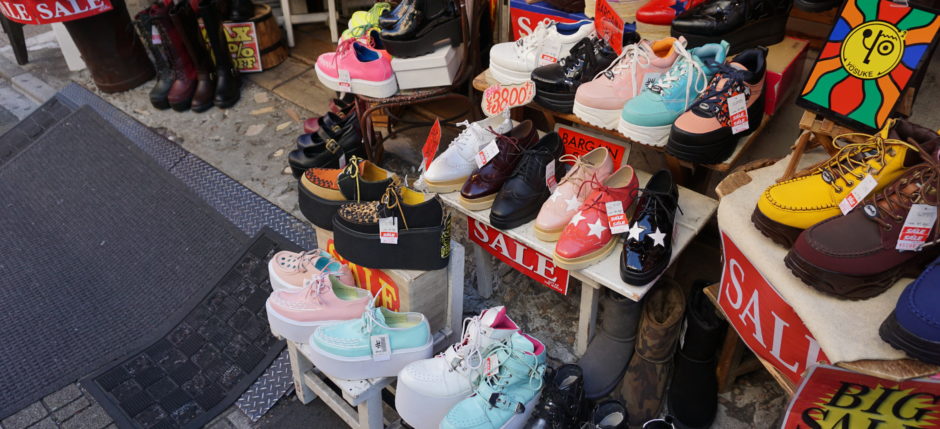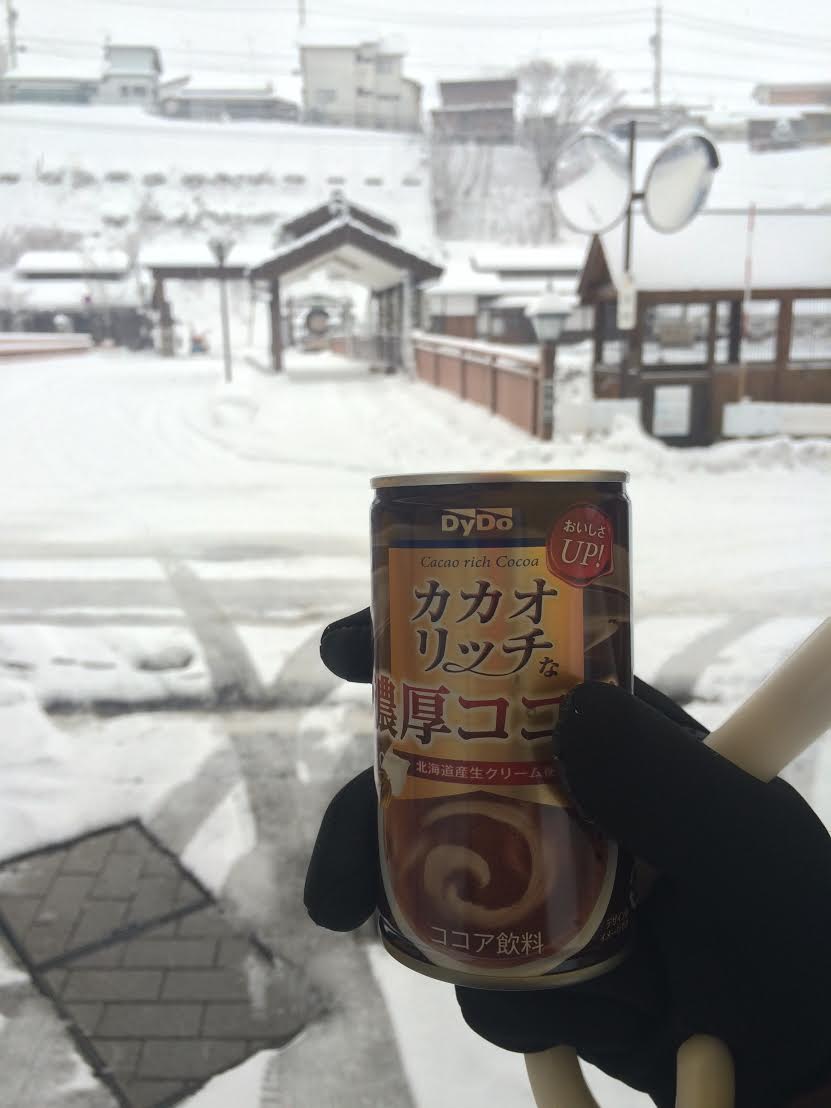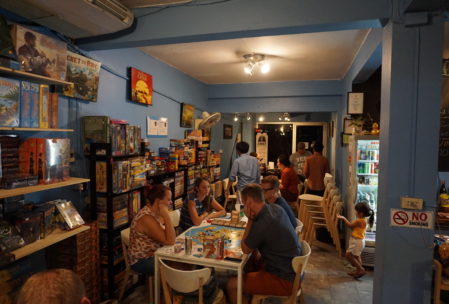
How to travel for a year: managing money
It’s June already, incredibly, and we have almost five months of traveling under our belts so far. I’ll be taking time out periodically to write a few posts about the “how” of traveling, living and working abroad for a year, since I know at least a couple of you are interested in doing this on some level. Today I’ll be talking about finances. It seems pretty straight-forward, right? You just try to spend less money than you make. However, when you have a moving target of billable hours worked, cost of living in your current country, family visiting on holiday, currency exchange rates, not to mention the constant barrage of awesome vacation-y things you could participate in or delicious things you could eat, it’s a struggle. A daily one, in fact.

I’m ashamed to admit how many vending machine coffees and hot chocolates we bought in Japan. But they’re the perfect temp: hot enough to enjoy, not to hot to hold with bare hands. It’s genius!
My approach to finances had always been: be frugal, don’t be in debt, and if you make a decent living, then you’ll never live beyond your means and you’ll manage to save. That got me through 7 years of being single after college and never bothering much with a budget. Until I got married. All of the sudden we were living on one income and using the other to pay off a not-so-inconsequential amount of student loans, and everything changed. We had to keep track of our expenses in a helpful monthly budget spreadsheet that we got from Derek Olsen, a financial podcaster and friend from our home church. And that worked…
Until we left the country in January. Those first few months I had been dutifully recording all of our cash and credit expenses against Matt’s income (which is never quite the same month to month, since he works as a contractor) in our little spreadsheet. Fast forward to early March, and I’m a wreck. “How did we spend so much money on Uber??”, I cried. We were in Bali, an inexpensive island in a third world country, where you could take an Uber for $2, buy a Bintang beer for $1, and get a plate of nasi goreng for $0.80 from the shop on the corner or the same thing for an outrageous $6 on the tourist-y beach. And yet it felt like we were bleeding money on eating out, taking Ubers everywhere, grabbing a couple beers while listening to live music on the weekends. Not very proud to admit that in the Southeast Asian countries we visited, we ate ice cream or drank fruit juices almost every single day. It’s easy to rationalize under a blazing sun with intense humidity and a weakening morale.

fresh made coconut and matcha ice creams with toasted coconut and shaved coconut flesh in KL, for about $1. I can still taste it…
I found that it was incredibly easy to justify very small expenses multiple times a day in a place like Bali vs a first world country like New Zealand. Realizing that we had in fact spent more money than we’d made in February, I spazzed out to Matt about how we were wasting money and would have to go home early and live in my parents’ basement, and then composed myself and emailed Derek for some direction. He advised the following:
“You will need to stay hyper-flexible, hyper-reactive, and most importantly, hyper-proactive. You guys are so far out of your normal comfort zone that things won’t always fit the way you wanted or expected them to, even with all the planning you did. Doing something this huge will require that you make adjustments daily and weekly to match your always-changing situation.”
He helped me take perspective by ceasing the worry and focusing on how we got off track. And this really was the problem:
“There is a HUGE difference between a year long vacation and a year long travel experience. It’s really simple… Vacation is expensive, a travel-experience doesn’t have to be.”
I started to look for free and cheap activities. I also started to see this year of travel as a chance to live our lives abroad, rather than a year of play and recreation. When we’re at home, we still have to clean, take care of our pets, go to work, be productive. That’s still true here, even though the work is remote. We’ve found that we’ve had just as much fun exploring the cities and countries we’ve visited on our own without expensive tours or activities or constantly eating ice cream. Yes, we have splurged on fun activities like a nice dinner date, or a cooking class, or a snow monkey park 🙂 – but all of those things were intentional, because when we’re at home, we occasionally spend money on fun things too! The difference is that because our lives are so unpredictable and unscheduled out here, we have to first look at our daily budget and figure out if we even have the money. It’s like our backpacks, which I’ll talk about in a future post: you only have so much space. Doesn’t matter how cheap that giant volcanic rock carved mortar and pestle is, you cannot bring that thing with you (I really wanted to…it was $6 but it also weighed about 25 lb!). Same with finances. Depending on how this month is going, with what airline tickets are getting bought or how expensive it is to live here, we may have the money for a fun dinner out or we may need to make our own fun dinner at home. And there are times that you save up for. Matt’s parents are visiting us in Australia, and my parents are visiting us in Europe, so we plan to spend a little more money to eat out and do some fun things together. We won’t be going skydiving and parasailing and getting spa treatments every day, but it will definitely be a fun time.
So how do you have fun? I’ve talked about meetup.com already. Depending on the size of the city, you might find several Meetup groups on there that offer free or cheap activities to do as a group. Examples? Free board game night every week at a board game shop in Bangkok.
Free sketching party down at Lyttelton Harbour. Free Canterbury short film festival in Christchurch. Coffee lover and French speaker meetups in Tokyo. I also look at the events calendar of a city whenever we go there to see anything interesting going on. When we stay in cities, I try to get us living close to the action so that we can walk around and not waste lots of money on long train rides in and out. We check out the very resourceful I-Site visitor centers located in every town in New Zealand to see what hikes or landmarks are a must-see. We hike and go on walks. A lot. Bring a pedometer with you, and make it a personal challenge. We make friends at a church and I ask ladies that I meet out to coffee, or have couples over for dinner or afternoon tea. And when you’re so sick of cooking and staying home every evening, you go to a food truck and buy a cheap kebab and walk around downtown eating your dinner, admiring the city at night.

going to a mall in Bangkok is great because they’re all quirky and have free A/C! This one has themed floors. Notice how all the toy cars are driving on the wrong side of the Golden Gate bridge…
After several months of financial data, I now know how cheaply we can pay for groceries and still eat well, and how expensive it is to move from country to country (the answer: stay put as long as you can). You’ll notice trends of your own if you do this, and it will help you course-correct next month. There are other blogs that do a full breakdown of their budgets but I promise you that it is entirely possible to save a third or more of your income while living abroad and traveling to various countries. There is no reason why this should be more expensive than living at home. With some planning it can be much much cheaper.

Average cost of a street meal (soup or noodles and a bottle of water) in Bangkok: $1.25. You’ll never get groceries there for this cheap so it makes more sense to eat out, but you have to exercise restraint. Indulging in sushi and Western food will add up real quick. Cost of a pub meal in Christchurch for main dish and non-alcoholic drink per person? $21. Here in NZ we almost never eat out.
I use a fantastic iPhone app called Daily Budget. It’s offline-only because I have no desire to sync these transactions to the cloud, but there are other app options if you want that sort of thing. Anything we pay for, no matter how small, I convert to USD using another app called Fancy Units and mark in the Daily Budget app. This ends up being a full list of my variable expenses that I can drop into my spreadsheet at the end of the month for a look back at the month, but also a good proactive tool to use on a daily basis so we know how we’re doing so far. Large purchases, such as an airline ticket for June paid for in March, will go as a “Big Expense” from the purchase date until the flight date, and it will average out the cost by day during that time period. Ultimately it still gets documented in March’s budget because it’s spent with March’s money, but if I’m spending a lot of money on flights and AirBnBs in March, I should not be quite so spendy for the next couple months to help make up for it.
And that’s it! I hope this was helpful and encouraging from a standpoint of considering whether working remotely would be possible for you. It has definitely been an evolving process so far and will continue to be, as we head for some of the more expensive countries of the world (Australia and Europe) and try to continue to be frugal. But cool news on that front: we have locked down two more housesits: a month in French-speaking Switzerland on an alpine lake near Geneva, and three weeks in Brighton, England near the seashore. That’s really the kicker: if you can stay for free and you don’t have rent or mortgage back home, you can do (and save) a lot more. I’ll talk more about how we’ve been successful at housesitting in another post!
Categories: Long term travel tips

Great post!! Sounds like Derek has some good advice, not just for you guys but a lot of situations.
So glad to hear from you and hope you don’t run out of money!!! I would probably get a big box and fill it with what I thot I couldn’t live without, trinkets!! and send it home and then wonder why I thot I needed that stuff! I envy you going to Switzerland…we were there, flew into Zurich, bussed all over, St. Moritz and where they made soundof Music and rode thru the alps with a big back window you could see where you have been and then we were at Brighton and that is neat, lots of hippies…also a palace that was not in good shape but good to see. Just soak it all up! I will tell the parents to bring lots of money so they can feed you kids. Summer time has come for sure, 90 yesterday and hot all week..WE are praying for you and hope all goes good there on the farm. Look forward to you next blog…have you noticed I am the only one that writes a blog too. ha love you…Mommo
Very informative!!
This is why I love KC so much. There is so much free stuff to do. You can enrich your life without the nagging pinch in the pocket. You might even get a boost of morale by thinking , ” that was a great time, and it was free, I am so clever.” Now my urban thoughts on it: In general this is what city’s are all about, amenities are collectively paid for and don’t fall on the individual. Things like the library, public pools, parks, art, transportation, etc.
We saw the Shakespeare in the Park’s 12th Night last night. Best production and cast I’ve seen so far.
dangit, Twelfth Night? That’s one of my favorites. :/ I was thinking about missing summer in KC. I don’t miss the heat you all are dealing with, but it really is the best season. There’s so much to do!